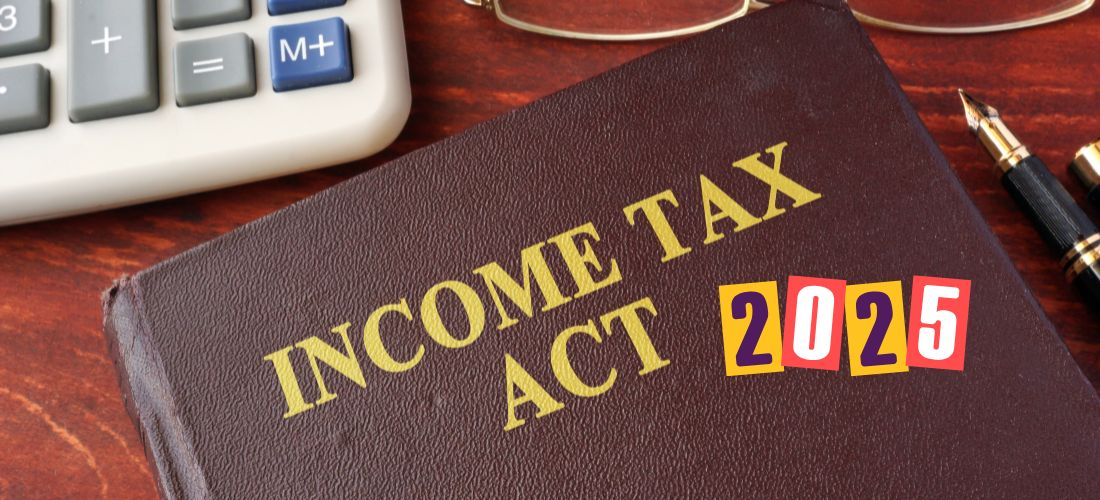


The Income Tax Act, 2025 has been introduced with the aim of simplifying taxation, ensuring transparency, and making compliance more digital and streamlined. It marks a big shift in how income is assessed, reported, and taxed in India.
While it affects the entire economy, the three groups most directly impacted are:
Individual taxpayers
Businesses
Property owners
Let’s break down what the changes mean for each of them.
The new Act revisits tax slabs to provide relief to middle-class taxpayers while widening the overall tax base.
Salaried employees enjoy lower rates in certain brackets.
Higher earners see fewer exemptions and deductions.
The goal is to simplify tax planning and reduce dependency on complex calculations.
Some deductions under Section 80C (like savings and insurance) remain.
Many exemptions have been trimmed or removed to move towards a cleaner, exemption-free tax system.
This means individuals will need to be more strategic about investments and claims.
Enhanced digital filing systems make returns faster and user-friendly.
Pre-filled forms reduce errors but increase scrutiny.
All income sources must be properly documented—leaving less room for oversight.
Salaried employees face a simpler process with predictable obligations.
Freelancers, consultants, and gig workers face stricter reporting norms, particularly for digital transactions. Proper planning is key to avoid penalties.
SMEs benefit the most, with reduced rates encouraging growth and entrepreneurship.
Large corporations don’t see major cuts but get some relief via deductions on eligible investments.
GST continues separately but reporting rules are stricter, especially for interstate and international trade.
TDS provisions are tightened to ensure accurate tracking of payments and receipts.
Businesses must adopt e-invoicing, digital records, and real-time reporting.
Strong accounting practices are crucial since non-compliance may attract heavy penalties.
Tax holidays, simplified compliance, and capital gains rollovers encourage innovation.
These benefits aim to create a more business-friendly ecosystem in India.
Deductions on housing loan interest continue.
Some secondary deductions are removed to close loopholes.
Owners must be more strategic in claiming expenses.
Compliance costs for investors are higher.
However, long-term investors benefit from more clarity and simplified rules.
The changes aim to curb speculative property transactions while rewarding genuine investment.
Individuals: Simpler slabs, fewer exemptions, and tighter compliance.
Businesses: Easier rules for SMEs/startups, stricter reporting for all.
Property owners: More clarity but reduced secondary deductions.
The Act reflects India’s move toward a transparent, digital-first tax system.
1. What is the main goal of the Income Tax Act, 2025?
To simplify taxation, reduce exemptions, promote digital compliance, and ensure transparency.
2. Who benefits the most under the new Act?
Middle-class salaried employees, SMEs, startups, and long-term property investors.
3. What challenges do taxpayers face?
Reduced exemptions, stricter reporting norms, and the need for accurate record-keeping.
4. How are freelancers and gig workers impacted?
They face tighter scrutiny on digital income and must plan carefully to avoid penalties.
5. Are property-related tax benefits removed?
No, housing loan interest deductions remain, but some secondary deductions are trimmed.
The Income Tax Act, 2025 is a landmark reform reshaping how individuals, businesses, and property owners deal with taxes. By promoting a digital, transparent, and accountable framework, it reduces complexity but demands stricter compliance.
For taxpayers, this is both a challenge and an opportunity: a challenge to maintain accurate records, but an opportunity to benefit from a cleaner and fairer tax system.
Have questions about tax filing or financial compliance? Share your thoughts, and let our experts guide you with accurate and reliable advice.
Try it Risk Free we Don’t Charge Cancellation Fees.


Post By : CA Madhur
Aug 26, 2025